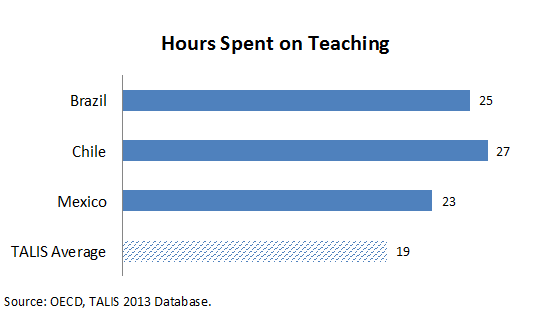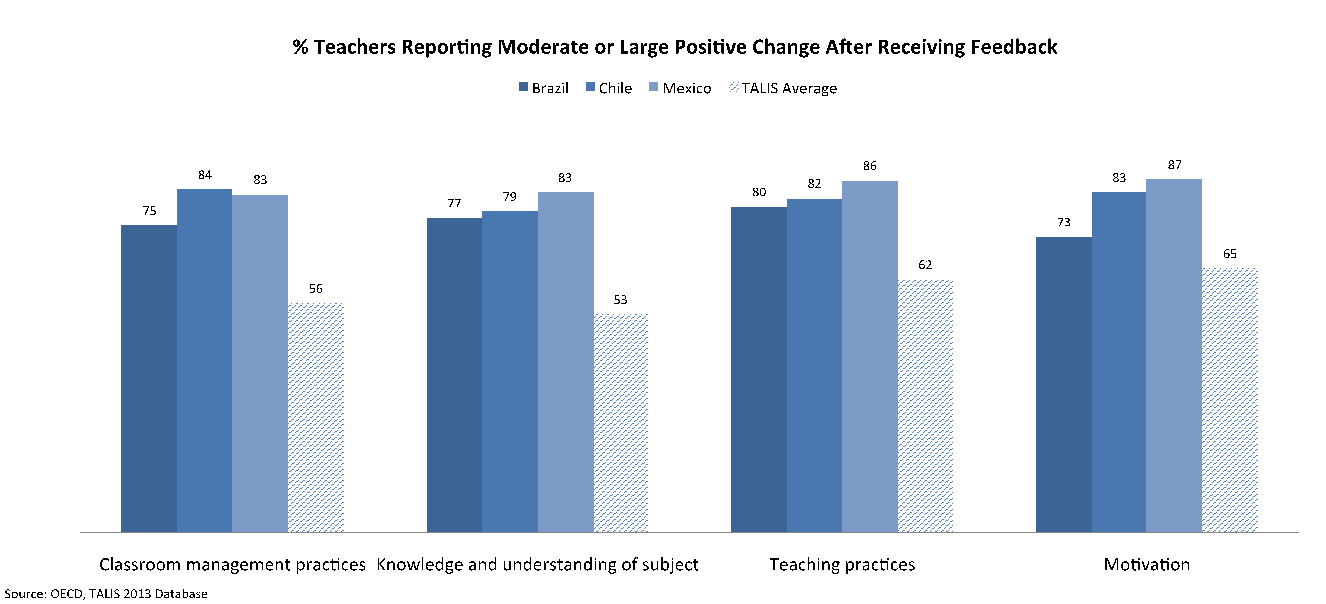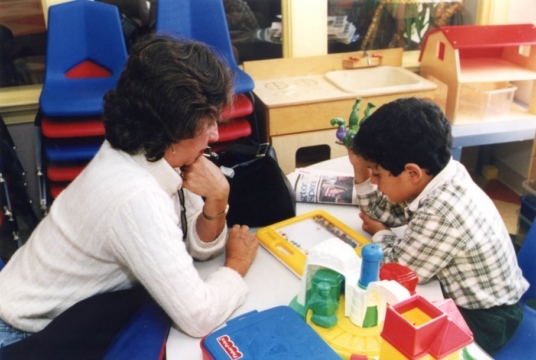This post is also available in:
Spanish
On June 25th, the OECD released results from the 2013 Teaching and Learning International Survey (TALIS), which collects information on secondary school teachers’ perceptions of the teaching profession and their work environment. The 2013 TALIS surveyed more than 100,000 teachers and principals in 34 countries across the globe, including three in Latin America: Brazil, Chile, and Mexico. The results highlight emerging trends and provide hints for future reforms.
Latin American teachers in Brazil, Chile and Mexico spend more hours teaching than the TALIS average. While teachers in TALIS countries overall spend an average of 19 hours per week teaching, Latin American teachers in the three countries surveyed average about 25 hours a week. However, their total working hours fall below the TALIS average, suggesting that Latin American teachers do not necessarily have longer workdays, but rather spend less time on non-teaching tasks such as planning, training, or other administrative tasks that are equally important for learning.

Latin American teachers report spending less time on teaching and learning inside the classroom. Teaching and learning tasks account for 67% of classroom time in Brazil, 73% in Chile, and 75% in Mexico, while the TALIS average is 79%. Compared to the TALIS average, teachers dedicate more time to administrative tasks in all three countries and, in Brazil and Chile, to keeping the classroom in order. Maximizing instruction time is critical to improving student learning.
Teachers in Latin America say they need professional development for teaching students with special needs. Overall, surveyed teachers ranked skills to work with mentally, physically, or emotionally disadvantaged children as the highest professional development need, with Latin American teachers more likely than average to identify this as a priority. While 22% of TALIS surveyed teachers mention it as a need, a quarter of the Chilean educators, 47% of the Mexican teachers, and 60% of the Brazilian instructors remark it, suggesting it is a top priority for professional development strategies.
Receiving feedback has a moderate or large positive impact on motivation and teaching practices of Brazilian, Chilean, and Mexican teachers. Receiving any type of communication of results, whether formally or informally, reportedly has positive effects on teachers’ classroom management practices, knowledge and understanding of subjects, teaching practices, and motivation. After receiving feedback, 65% of TALIS teachers report a positive –moderate or large– change in their motivation, while this number exceeds 72% for the teachers in the three surveyed Latin-American countries. Teachers’ positive attitude toward receiving feedback is an encouraging indicator for promoting policies that use this practice to improve teachers’ performance.

For Latin American countries where education quality is a pressing issue, TALIS results provide valuable insights on teachers’ perspective to improve the teaching and learning process. However, more data is needed from across the region to be able to provide a more accurate analysis of the needs and challenges of teachers in Latin America. Going forward, Latin American countries should incorporate systematic measures of teachers´ perceptions as their perspective is crucial to improve their education systems.
*Belén Cumsille R. is an intern of the education program at the Inter-American Dialogue and a graduate student at the University of Texas at Austin.
























